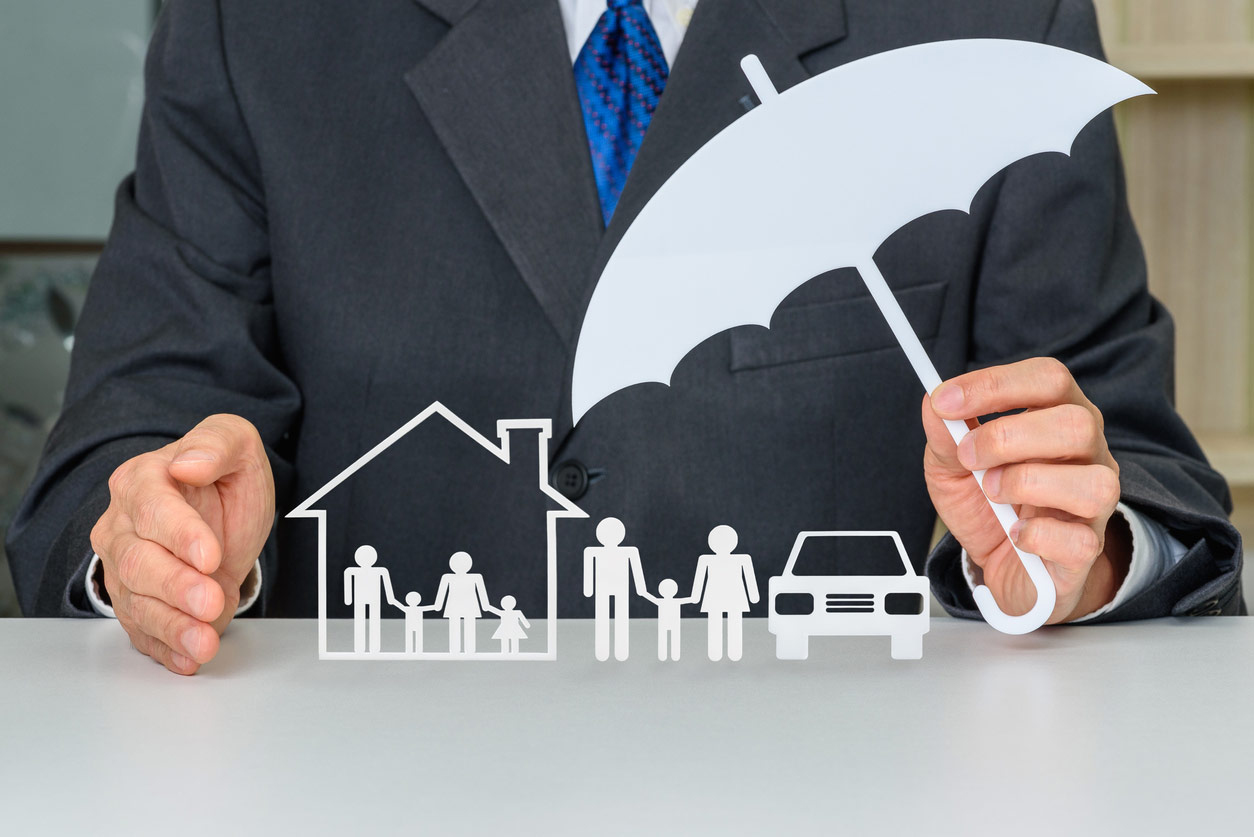Search “umbrella liability insurance” and it won’t be long before you see this phrase: “It’s only $200 or $300 per year for $1 million of coverage.”
While it may sound like you get a lot for a little, you need to understand what umbrella insurance is — and whether you need it — before concluding such insurance is “a bargain.”
Don’t get left out in the rain
Homeowner’s and auto insurance policies are known as “property and casualty” polices. The property part means that if you wreck your car or your house burns down, the insurance will pay to make things right.
The casualty part is liability coverage. If you hurt someone or damage property in a car accident that was your fault, or if someone falls down the stairs at your home, your policy is designed to cover those liabilities. However, unlike insuring against damages in situations when value is relatively easy to determine, liability risks are more difficult to measure — and potentially can be much greater. Often, liability protection provided by homeowner’s and auto policies proves to be insufficient.
Those extra risks can be covered with an excess-liability, or “umbrella,” policy. It’ll take over at whatever point the liability coverage of your homeowner’s or auto insurance policy leaves off, up to its own limit.
Here’s a simple illustration. Joe has a $300,000 limit on bodily injury liability in his auto insurance policy. He is at fault in an accident that results in medical bills of $500,000 for the person he hit. His auto policy will cover the first $300,000. Without an umbrella policy, Joe would likely be sued for the remaining $200,000, leaving his personal assets at risk. But Joe has a $1 million umbrella policy, so it covers that $200,000 instead.
What’s already covered?
Homeowner’s insurance policies provide two types of liability coverage. Personal liability covers claims (or lawsuits) related to any injuries or property damage someone may experience because of an accident on your property. It also covers damage elsewhere caused by you or a family member who lives with you (e.g., your child hits a baseball through a neighbor’s window). Protection levels typically range from $100,000 to $300,000. Medical payments to others covers medical costs for someone injured on your property. Limits range from as little as $1,000 to $5,000 of protection per person. An umbrella policy can provide additional payments in such cases.
As for auto insurance, nearly all states require vehicle owners to carry liability coverage. If you are found to be at fault in an accident, property damage liability coverage will help pay to repair or replace the other person’s property. If the other person is injured, bodily injury liability will help pay the medical bills.
Mandatory auto insurance coverage amounts vary by state and can be fairly low. In Kentucky, for example, the law requires property damage liability coverage of only $25,000 and bodily injury liability coverage of just $25,000 per person and $50,000 per accident. Many drivers opt for higher coverage amounts, but there are limits as to how much coverage is available — and even at higher coverage levels, you run the risk of being sued for more.
New protections, remaining risks
Before assuming the liability protections provided by your homeowner’s or auto insurance policies are enough, here are some factors to consider. If you have teenage drivers or you regularly give rides to other adults or other people’s children, you have increased risks that may warrant added insurance protection.
When it comes to your home, stairways and slippery sidewalks are common sources of injury. Add a swimming pool, trampoline, swing set, or a pet that could hurt someone (e.g., Pete the pit bull), and your risk levels go up quite a bit.
If you own rental property, an umbrella policy will help protect you if you are sued for injuries suffered by someone who trips on the sidewalk or gets bitten by your tenant’s dog, or for injuries or property damage sustained by a tenant.
Such insurance also protects you in case you’re sued for libel or slander.
As for what umbrella policies do not cover, typical exclusions include: damage you cause intentionally, issues arising from business pursuits, and anything related to aircraft, jet skis, and other types of recreational vehicles.
Umbrella policies usually are sold by companies that already provide your homeowner’s or auto insurance, and most such companies require you to carry certain levels of liability coverage on those policies before they’ll sell you an excess-liability policy.
How much coverage do you need?
To evaluate whether you need an umbrella liability policy, estimate the value of your assets and compare it to the liability coverage you have through your homeowner’s and auto policies. The greater the gap, the more an umbrella policy makes sense. It’s worth noting that some settlements and judgments in liability cases have gone after not just current assets but future earnings as well.
Some financial advisors recommend buying an umbrella policy that would protect the value of your current assets plus an extra $1 million for peace of mind, especially given the relatively low incremental cost of additional coverage. That cost will depend on how much coverage you choose, where you live, how many and what types of vehicles you own, and more.
Final considerations
Some of your assets may already be protected from lawsuits. Workplace retirement plan and IRA assets would most likely be protected. Your state’s homestead exemption may protect your home, or at least some of its value. If you’re married, titling your home “tenancy by the entirety,” if that’s an option in your state, will mean that both of you own 100% of the property. That way, if just one of you were sued, the home would be protected.
However, for many people, relying on words and phrases such as “most likely,” “may,” and “some” doesn’t provide adequate peace of mind. If you have significant assets, protecting them with an umbrella policy is likely worth the relatively small premiums. As with other forms of insurance, you hope you’ll never use the policy. But even if you never make a claim, an umbrella policy may help you sleep at night, knowing these liabilities are covered.









